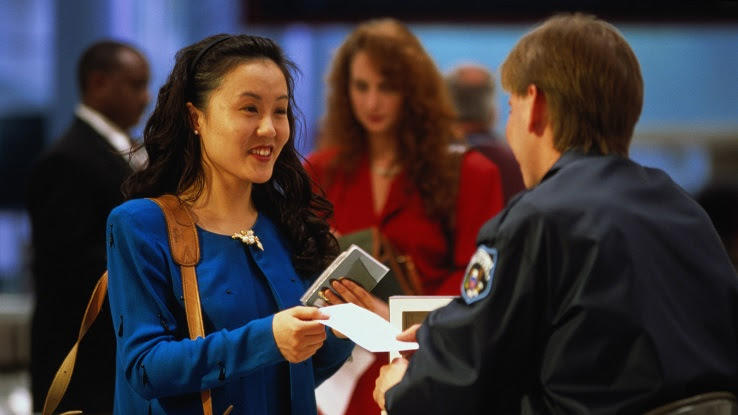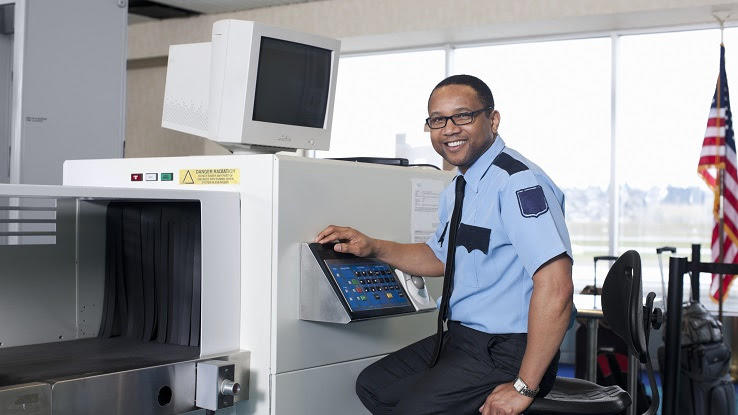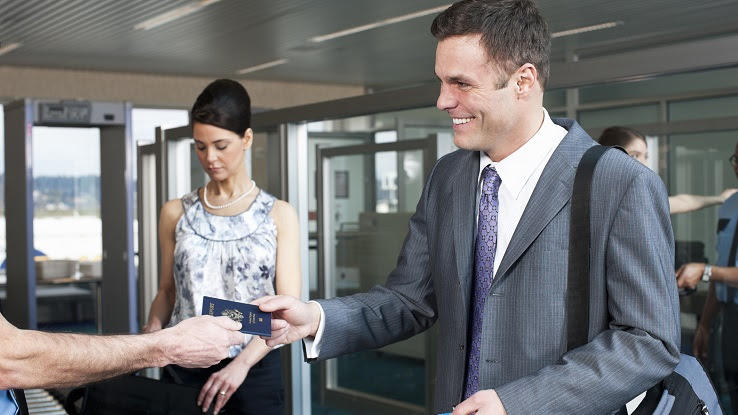
Planning out a travel budget is one of the most important things to check off your to-do list before you embark on a global adventure. After all, the costs of traveling include everything from airfare to hotels to transportation — and maybe even a new set of luggage. But they also go beyond these essentials, especially if you’re heading out of the country and plan to do a bit of shopping at your destination. Beyond the cost of the trip itself, U.S.-based travelers must also account for travel insurance, currency exchanges and U.S. customs duties.
If you’ve ever re-entered the U.S. from an international destination, you might’ve been surprised to learn about your obligation to pay customs duties on the goods you purchased outside the country. Here are the facts about travel taxes you’ll want to understand before going on your next shopping spree abroad.
What Are U.S. Customs Duties?

U.S. customs duties are taxes you pay on goods you purchase outside of the United States. These taxes are based on the purchase price of the goods, and they’re levied on many items that you buy in a foreign country and re-enter the U.S. with. Rather than paying the costs at tax time once a year, you pay them immediately when returning to the U.S. and declaring that you purchased items abroad and are bringing them home. The process is usually handled by the federal U.S. Customs and Border Protection agency.
When it comes to these taxes, each traveler has a personal exemption. This means that any purchases that fall within this dollar-amount threshold are not subject to U.S. customs duties, so you don’t need to pay duty taxes on them. The personal exemption is always a dollar amount, and it can fluctuate based on the country you’ve traveled to. Typically, the exemption is lower for countries with a lower cost of living and higher for countries with a higher cost of living.
What Is the Purpose of U.S. Customs Duties?

U.S. customs duties may seem like an inconvenience, but they’re designed to protect fair trade, the environment and global citizens. People everywhere have a tendency to buy products for the most affordable price they can find. While it’s not exactly illegal to look for the best bargains and try to purchase items for the lowest price, if left unchecked, the ability to buy low-cost products in other countries can create disadvantages in both economies.
Suppose a person regularly travels outside of the U.S. to buy low-cost goods and resell them in America. That individual creates economic competition, but they don’t pay the same shipping costs and tariffs that a U.S.-based business would. The individual doesn’t pay business taxes to the foreign country, and, if they’re unscrupulous, they might not pay taxes to the U.S. government either. Depending on how extensive this individual’s efforts are, two countries and an untold number of businesses could lose out on income. Customs duties aim to prevent this kind of situation.
In addition to preventing financial abuses, customs duties protect consumers and the environment. For example, invasive species can destroy crops and animal populations. Sometimes, invasive species enter a country through fruit and plants that travelers illegally bring in and neglect to declare to customs agents.
There are many goods that are illegal in some countries and legal in others — this is another reason it’s vital to declare goods you bring in from abroad. Say, for example, a certain toxic pesticide is outlawed in one nation, but someone brings fruits home that have been coated in it. Doctors and poison control centers in that country may be unfamiliar with the symptoms and treatment protocols for people who have been exposed to the pesticide. Without customs duties, this scenario could happen, unbeknownst to officials or anyone else. That could present a large threat to public health. U.S. customs duties provide a way to measure the amount and types of foreign goods that enter America and ensure they don’t create excess economic competition.
How Are U.S. Customs Duties Calculated?

The process for calculating customs incorporates several steps. First, you’ll determine the personal exemption that applies to the country you’re visiting. If the total costs of the goods you’ve purchased fall well below that number, your calculation is complete. You can rest assured that you won’t need to pay customs duties on those items.
It’s important to note that personal exemptions don’t apply to purchases that are commercial in nature. Personal exemptions don’t apply if you spent fewer than 48 hours outside of the country, and they don’t apply if you’ve already used a personal exemption in the previous 30 days.
Once you’ve exceeded the dollar amount of your personal exemption, it’s time to make some calculations. Customs duties represent a percentage of the price you paid, but determining that percentage can be complicated because it’s based on qualities related to the item. For example, two different coats can have two different customs rates based on the types of material they’re made of. The Harmonized Tariff System and the ability to request a ruling from a customs agent on a specific item can provide clarity if you’re concerned about costs and need guidance.
What Items Require You to Pay U.S. Customs Duties?

If you didn’t have the item with you when you left the U.S. and it doesn’t fall under a personal exemption, U.S. customs duties will apply to that item. Duties can even apply to repairs done on foreign soil to products you brought with you when you left the U.S. The United States recognizes trade agreements with certain countries that exempt goods purchased in that country from duties. For example, American travelers who buy goods in many North American and Caribbean nations often don’t need to pay U.S. customs duties.
Be aware that the requirement to pay duties isn’t the same as the requirement to declare items to a customs agent. You’ll need to declare anything you purchase outside of America to a customs agent. If the agent finds undeclared items, they can confiscate the items from you.
How to Pay U.S. Customs Duties

You must pay U.S. customs duties to the customs agent at your time of travel. All payments have to be made in U.S. currency. Customs agents accept cash, personal checks, government checks, traveler’s checks and money orders. Some customs offices can accept debit and credit card payments through Visa and MasterCard, but that option isn’t always available.
Like sales tax in America, U.S. customs duties are often a single-digit percentage of the purchase price of an item. However, the duty rates for certain countries, including many popular European tourist destinations, can be much higher. Before you travel, do some research on the personal exemptions and potential customs duties that may apply to you based on the country you plan to visit. Considering the cost of bringing heavy purchases back home on an airplane, it’s possible you might not exceed your personal exemption.






